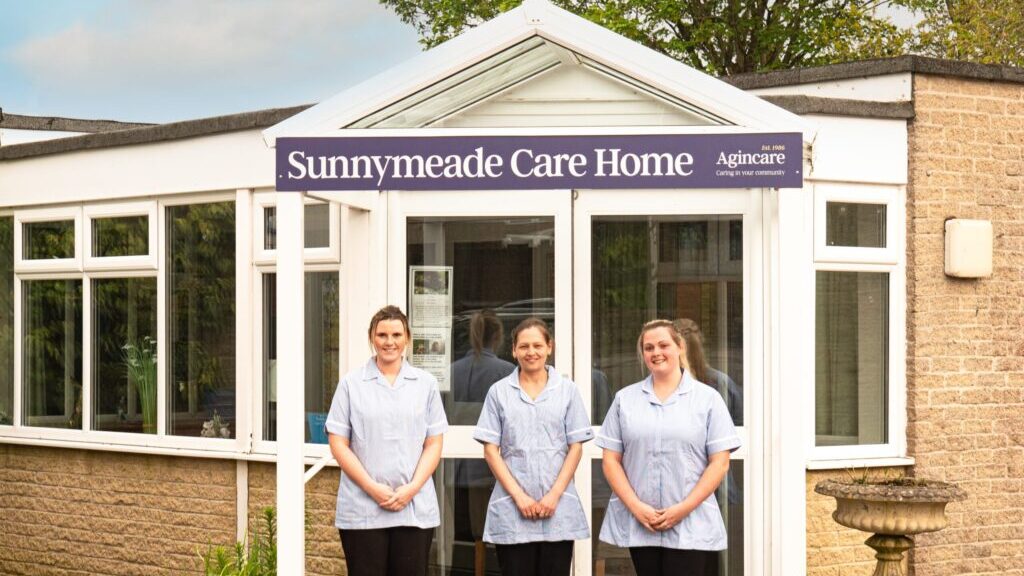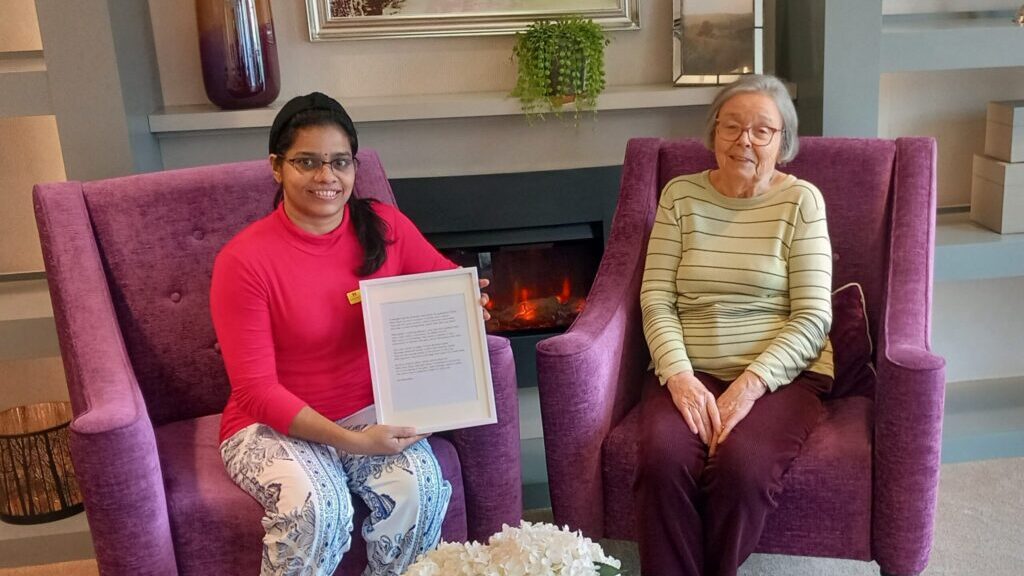VAT chance
We talk to Kieran Lynch managing director Jock Waugh about the impact of indirect taxation on the social care sector and how, by making some changes to how contracts with public funding bodies are managed, care providers can legitimately claim back VAT expenditure in respect of services supplied to publicly-funded clients.

Early last year Jock Waugh, managing director of VAT recovery specialists Kieran Lynch, wrote to Chancellor Rishi Sunak, suggesting that, as the post-Brexit United Kingdom was no longer tied to EU tax rules, there was now an opportunity for the UK to shape its own VAT agenda. As part of this proposed reform, Jock suggested that social care providers should no longer be categorised as VAT-exempt but instead be zero-rated. This, he argued, would enable care providers to recover VAT on their running costs, potentially saving the sector over £600 million per annum.
A week later a response arrived from the Chancellor’s office saying the Government had “no plans to review the VAT treatment of these services at present” and that it had addressed the “short term pressures” on the sector by extra grants to local government in the recent Spending Round.
Since it was introduced in 1973, when Britain joined the European Union, Value Added Tax has been a significant headwind for care providers. Care fees were made VAT-exempt, which meant care fees could be kept lower than they otherwise might be, but it also meant operators of care services could not claim back VAT paid as part of their trading costs, which other business operators are able to recover. As already mentioned, this costs the sector over £600 million annually.
“That fits with their political agenda,” said Jock. “They want to maintain individual fee negotiations between providers and unitary authorities – to keep the attrition between care providers and local government as a buffer between the sector and the Treasury.”
“Where the ideal solution to that might be a zero-rating on care fees, instead of an exemption, the Chancellor’s office’s response to my approach makes it clear that the Government does not see changes to tax legislation as being a part of future reform of social care funding, and this in what has been probably one of the most testing times for providers in recent years, with reduced occupancy and all the demands which have been placed on them in terms of infection control and protective equipment.”
But Kieran Lynch and other VAT specialists have identified a means by which care providers can be enabled to claim back part of their VAT expenditure within the existing legislative framework.
“We are now in a time where indirect tax, which has always been seen as a burden, has become a solution,” said Jock.
“If we look at the legislation as it has been drafted (and it may be argued that this was no accident) we can see that there is scope for care providers who provide services to publicly-funded clients to enjoy partial VAT recovery.
“By bringing together the Care Act 2014, which doesn’t compel public funders such as local authorities to contract with a regulated entity, and applying that into Group 7, Schedule 9 of the VAT Act, operators of care services can legitimately structure themselves to enjoy some level of VAT recovery.
“Ironically enough, the origins of this option stems back to around 2013, when a top Four accountant was contracted to a number of large local authorities in a drive to make efficiency savings. They saw an opportunity to use the VAT position as a care fees negotiation chip, so they said to care providers ‘if you keep your fees at such or such level, we’ll let you do your VAT recovery with us’. This, effectively, was the start of restructuring to enable care providers to recover VAT.”
Both the Treasury and HMRC appear to be content that care providers are able to recover VAT in this way. When Kieran Lynch helps a client to go down this route, it is standard practice for them, at the very start, to write to HMRC, explaining exactly what is being proposed, and why.
“Essentially, we first seek their approval, which they inevitably grant,” said Jock who, prior to becoming a care sector VAT recovery specialist, spent 25 years with HM Customs and Excise, dealing with the full gamut of indirect taxes, from policy, right through to running teams of inspectors as part of risk and intelligence and chasing VAT criminals. I asked him what would happen if, despite the Government’s stated dismissal of VAT reform in respect of social care, it then reviewed its stance, as governments have been known to do.
“Let’s take a scenario where government decided to change the Care Act 2014 and/or the VAT Act,” Jock replied.
“The principle of legal certainty would come into play and the changes would have to be implemented from a future date with a transition window which would allow care providers time to revert to invoicing as a regulated entity, but the likelihood of that is extremely slim.”
While some of the big providers had been vacillating over the issue of VAT recovery for three or four years, it appears the added financial pressures caused by the Covid-19 pandemic has given its implementation an added impetus.
“The ongoing cash benefit is just one aspect of it,” Jock said.
“Retrospective claims may be made for periods of up to four years and VAT recovery is also becoming a real tool in terms of acquisition and disposal; a care operator without the planning in place can be bought, the scheme put in place, and then EBITDAR goes up, and with it the value of the business as a whole. And the planning can stay with the entity, even if it’s sold-off later on as a share purchase, so it has a wider appeal.”
Local authorities also appear relaxed about the arrangements once doubts about contracting with an unregulated entity have been addressed. Whatever VAT a care provider charges a local authority, they recover on their VAT return, claiming it back from central government.
“This is further evidence of central government bringing money back into the sector in full knowledge of the mechanism being used, so it’s a passive means of shoring-up the sector without getting into commitments on fee incomes,” said Jock.
“And there is emerging recognition from significant public funding groups of the fee opportunities this creates for them, where they will charge a small fee to the care provider for administering the arrangements so, for example, if they agree to put an extra £2 million on a provider’s fee payments, they might take a nominal payment for processing that.
“This amounts to a commercial recognition by funders that everyone can benefit from these arrangements. I think we may see this fee-taking becoming the norm with, for example, a commissioner in the south of England having already raised this with me. Commercially minded operators don’t have a problem with that because they are going to get the major benefit and it’s not unreasonable that cash-strapped local authorities be enabled to generate some fees to cover staff time in administration.”
Void payments
Some local authorities and other public funders have been making ‘void payments’ – essentially paying for unoccupied beds – to help care providers during the period of low occupancy resulting from the Covid-19 pandemic. Many of them are now saying that they cannot sustain this, and as void payments begin to tail-off, many providers will find themselves under even greater pressure.
“There is an increasing pragmatism among many public funders who have hitherto been slow to take-up the restructuring,” said Jock.
“Many local authorities are now looking to VAT recovery as a form of replacement support.”
Jock said it had taken some time, however, for both care providers and local authorities to accept that restructuring their contractual arrangements could enable the former to partially reclaim their VAT expenditure.
“At the outset there was a lot of head scratching going on but the dissenters are far fewer now and it is increasingly regarded as standard practice,” he said.
“I was in a meeting very recently with two councils in Scotland who had been previous dissenters; they were now saying ‘we just need a document putting in place, a guarantee between parent company and subsidiary, and we’re good to go on this’.
“Another local authority in the north of England came back to me with three concerns which pretty much encapsulate where local authorities are at; one is ‘how can we possibly engage with an unregulated entity and ignore a CQC registration?’ The second is ‘we as a local authority cannot accept the reputational risk of engaging with an unregulated entity’ and thirdly,’what is our exposure if HMRC are ever to change their mind?’
“Now, the regulated entity, the organisation which delivers the care services is always a crucial part of the supply chain – it would be illegal if it wasn’t – so the second concern about reputational risk falls away; there is none because the authority has to be trading with the regulated entity. The management of those contractual arrangements is assigned to the non-regulated entity, so it is an assignment of responsibility for a particular aspect of business administration and not a complete replacement of responsibility.
“So now we have a large local authority in the north of england, which had made one of the highest void-payment commitments at 90%, looking at VAT recovery as a means of softening the impact on operators when they reduce their commitment to void payments.
“I think there is some recognition that historically the indirect tax system has placed disadvantages on some classes of care providers and not on others. A classic example of this is the Kingscrest ruling, which only applied to commercial operators and not-for-profit operators were unable to benefit in the same way, whereas this model of VAT recovery is a whole sector solution.”
So, whilst VAT has always sat uneasily with social care, it now has a significant role to play in its recovery and sustainability, and although grants may come and go, this indirect tax system has been around for some time, providing comfort for those who have been vacillating thus far on its take up.



